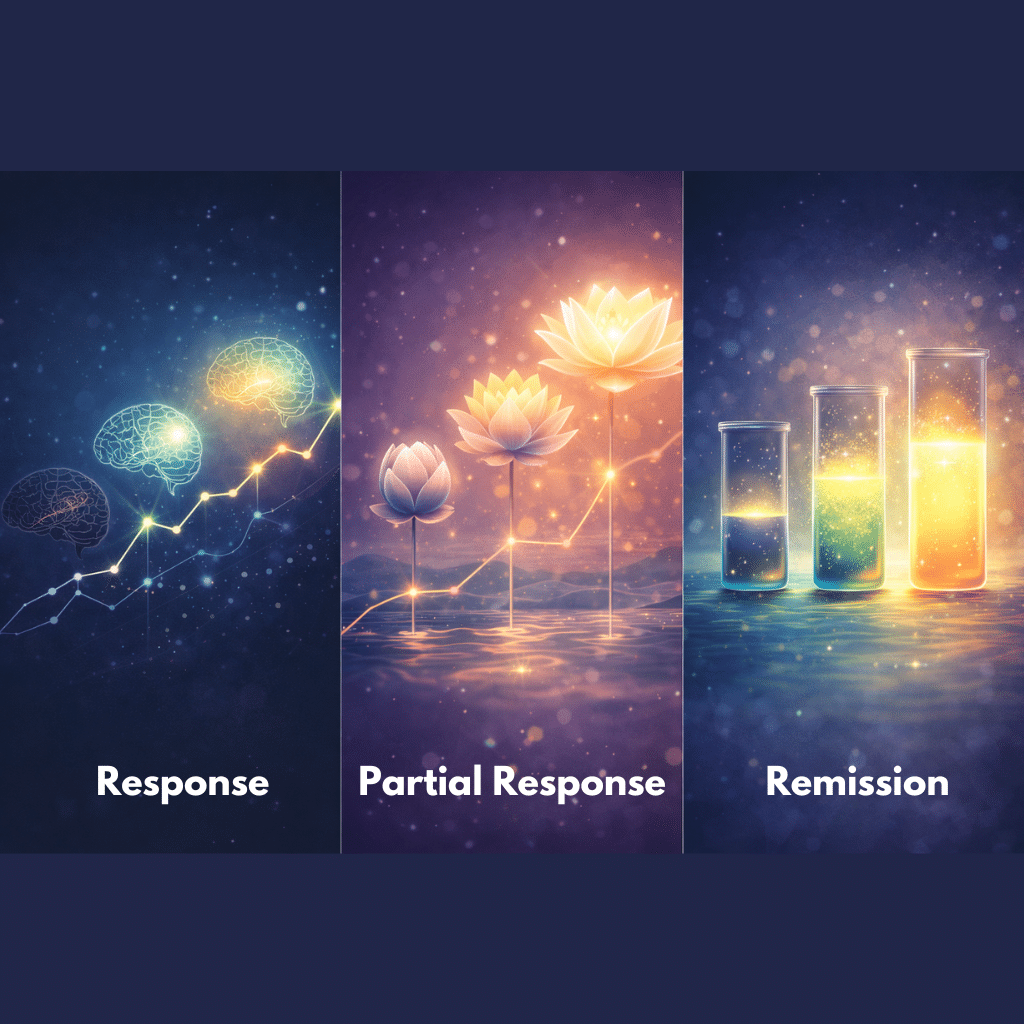Family gatherings can feel like a lot. Some people look forward to them all year. Others? Not so much. If you’ve ever felt tight in the chest just thinking about seeing relatives, you’re not alone.
Holidays tend to highlight stress. Whether it’s unsolicited advice, clashing opinions, or the pressure to look like you have it all together, the emotional load can quickly become overwhelming. And for people already living with an anxiety disorder, it’s even more intense.
About 1 in 5 U.S. adults (19.1%) experiences anxiety each year, according to the National Institute of Mental Health. Around the holidays, that number often spikes. The American Psychological Association recently found that 72% of people would rather skip political talk at family events altogether. That tells you something.
So, how do you manage the nerves without cutting people off or skipping the event entirely? Let’s walk through a few things that can help, before, during, and after the gathering.
1. Regulate Your Body Before the Stress Shows Up
Anxiety doesn’t wait for the front door to open. It usually starts earlier, with tight muscles, jittery thoughts, and poor sleep. These are signs your nervous system is already activated.
Start by focusing on what you can control in the lead-up to the event. Sleep is a good place to begin. Most adults need at least seven hours to function well, and missing that target repeatedly can worsen mood and energy regulation.
Food also matters. If you are managing something like diabetes or an imbalance of thyroid hormones, fluctuations in blood sugar or hormones can present as symptoms of anxiety. That racing heart might be your glucose. The shaky hands might be thyroid-related. Getting ahead of these patterns means steady meals, cutting back on caffeine, and listening to your body when it says it’s had enough.
One underrated tool is breathing. Not deep breathing in a vague sense, but structured techniques like 4–7–8. Inhale for four, hold for seven, exhale for eight.
2. Set Boundaries to Protect Yourself
You’re allowed to set limits, even with family. Especially with family.
Let’s say your cousin always makes backhanded comments. Or your dad insists on debating politics over dessert. It’s not your job to absorb that.
Try this: Plan ahead. Think about where you’ll sit. Decide how long you want to stay. Practice a few phrases in advance, like “Let’s not go there today” or “I need to step out for a second.”
This kind of boundary-setting is key if you deal with social anxiety. When you know what to expect, or at least have a plan for when things go sideways, it’s easier to stay grounded.
In therapy, this is often one of the first things we teach. Boundaries aren’t about control. They’re about reducing the emotional static so you can show up as yourself.
3. Come Back to the Moment When Things Get Loud
Even with prep, things can still go sideways. Someone says the wrong thing, a room gets too loud, and your stomach starts to flip.
In those moments, anchoring yourself physically can help.
Try the five senses method:
- Name five things you can see
- Four you can touch
- Three you can hear
- Two you can smell
- One you can taste
If you need a break, take one. Go outside. Wash your hands. Offer to help clean up. Movement helps regulate stress responses without drawing attention.
And keep breathing. Short inhales and long, slow exhales calm your system faster than you think. Slow breathing can engage the parasympathetic nervous system, which tells your body you’re safe, even when it doesn’t feel like it.
4. Focus on Real Connection
The need to “perform” at family events is common. Smile enough. Don’t look anxious. Answer every question with a joke. That mindset can wear you down.
Let go of being impressive. Look for something meaningful instead, such as a short chat with a cousin you like, playing with the dog, or helping your aunt with dishes.
These one-on-one moments matter. The U.S. Surgeon General has called social connection one of the most powerful protective factors we have for both mental and physical health. It doesn’t take a big speech. Sometimes, a small laugh is enough.
5. When Anxiety Starts to Spread Beyond the Event
What if it’s not just the holiday? What if you’ve been avoiding more gatherings lately, or you get hit with symptoms days before and feel drained for days after?
It might be time to look deeper.
Persistent anxiety symptoms like racing thoughts, insomnia, heart palpitations, or a strong desire to cancel everything could be part of a broader anxiety disorder. If you’re also dealing with chronic pain, thyroid issues, or blood sugar swings, the emotional fallout may be even harder to manage.
The U.S. Preventive Services Task Force now recommends that all adults under 65 be screened for anxiety, even if they don’t report specific concerns. That’s how common this is. And more importantly, that’s how treatable it is.
If you’ve ever searched for therapy near you, hoping someone could just explain why your brain and body won’t calm down, that’s where we come in. At Zeam, we provide anxiety treatment in Sacramento, Roseville, and Folsom that’s designed to meet people where they are.
6. Support Doesn’t Stop After the Holidays
Managing anxiety isn’t about surviving one event. It’s about learning how to soften the fear that shows up in different places, at work, in relationships, in the everyday moments you want to enjoy.
Long-term support might look like weekly therapy. For some, it might include medication management. Others benefit from more advanced options, like TMS or ketamine-assisted therapy when appropriate.
What matters is building a system that fits your life.
You Don’t Have to Dread It This Year
Anxiety isn’t just in your head. It’s your body doing what it’s learned to do, like bracing, guarding, and over-preparing, especially around family. Maybe that makes sense when you look at what gatherings stir up.
Still, the dread doesn’t have to take over.
At Zeam, we help people find a steadier footing. Not by forcing calm, but by working through the roots, emotional, physical, and everything in between.
If you’re dealing with social anxiety or just feeling frayed this season, we’re here. Our anxiety treatment in Sacramento and beyond meets you gently, wherever you are.
Key Takeaways
- Anxiety is common and treatable. Nearly 1 in 5 adults in the U.S. experience anxiety each year, and holiday gatherings can heighten symptoms.
- Preparation helps. Sleep, nutrition, and structured breathing can regulate the body’s stress response before social events.
- Boundaries are essential. Planning responses and limiting exposure to triggering topics reduces emotional fatigue.
- Mindfulness keeps you grounded. Techniques like the “five senses” exercise calm the nervous system in real time.
- Social connection protects health. Small, genuine interactions are powerful buffers against anxiety and loneliness.
- Seek help if symptoms persist. Long-term anxiety that interferes with daily life may signal an anxiety disorder — therapy, medication, or advanced options like TMS and ketamine therapy can help.
Citations / Footnotes
- National Institute of Mental Health — Any Anxiety Disorder: Data and Statistics. https://www.nimh.nih.gov/health/statistics/any-anxiety-disorder
- American Psychological Association — Most Americans Want to Avoid Politics This Holiday Season (2024). https://www.apa.org/news/press/releases/2024/12/avoid-politics-holiday
- U.S. Department of Health & Human Services — Our Epidemic of Loneliness and Isolation: The U.S. Surgeon General’s Advisory on the Healing Effects of Social Connection and Community (2023). https://www.hhs.gov/sites/default/files/surgeon-general-social-connection-advisory.pdf




